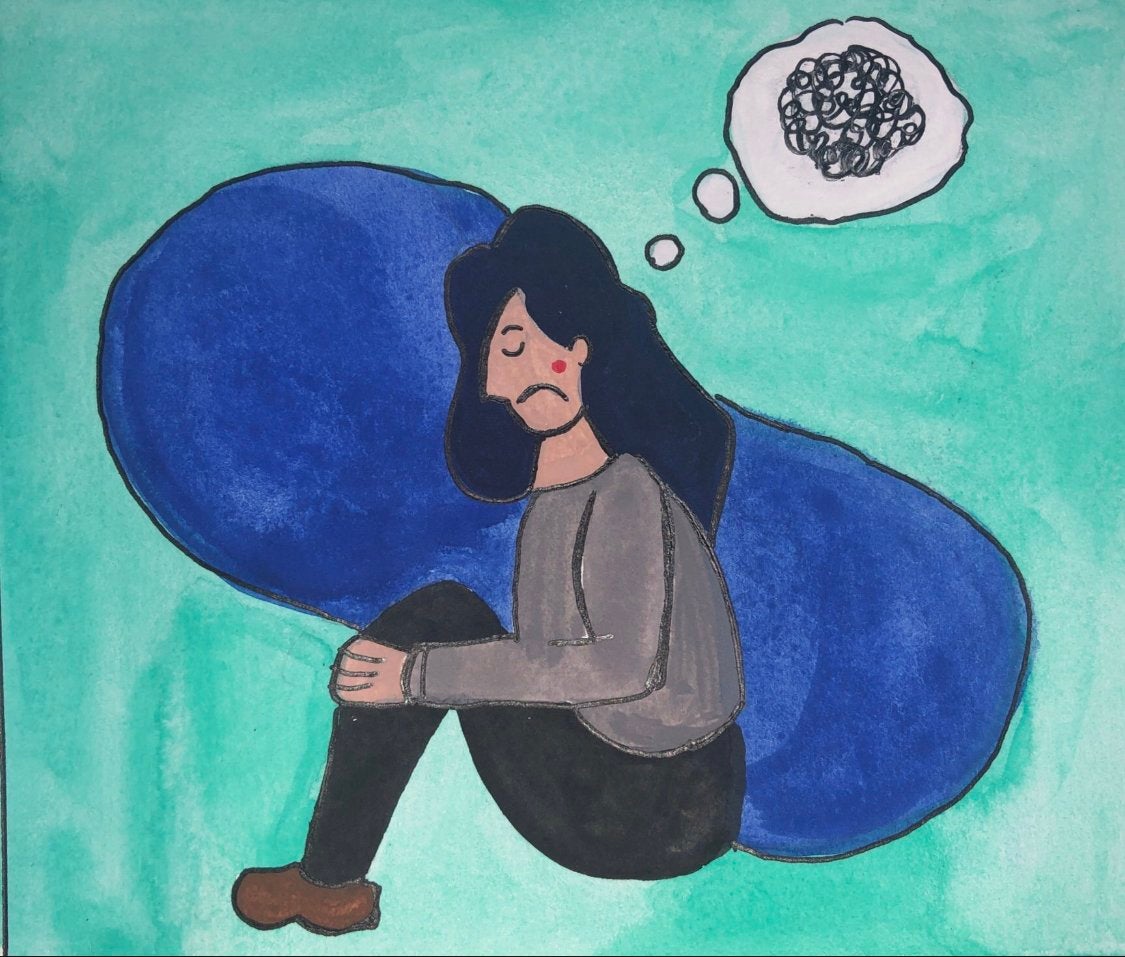Anxiety has run my life since I was fourteen years old. It is a constant struggle that manages to impose on all areas of my life and causes a lot of extra worry and stress, on top of leading me to believe that I am physically sick. Anxiety is different for everyone who has it, but for me, I experience constant worry as I go through my daily life, particularly out in public. Additionally, I experience a variety of physical symptoms that make me question if I am sick or experiencing an anxiety attack. Anxiety attacks are very different from panic attacks, despite often being used interchangeably. A panic attack typically comes on more suddenly and often without warning, and can be very severe before subsiding. An anxiety attack is typically caused by a trigger and lasts days, weeks, or even months with less severe but longer-lasting symptoms. I personally have only experienced anxiety attacks, which, even though they are less severe, are still incredibly scary, especially when you do not know what is going on.
When I was fourteen years old, and about to start high school, I began experiencing nausea, headaches, and tingling in my head, neck, and arms. I, of course, thought that maybe I was coming down with some sort of sickness and even boycotted all of the foods I was eating prior to feeling nauseous because I thought they might be the culprit (yes, I gave up mac and cheese for about a year because of this). I had no idea about the connection between my mental state and my physical body. Since then, I have had multiple instances like this, where my anxiety was subconsciously triggered because of a perceived health concern or underlying worry. These anxiety attacks are usually caused by the threat of some big change in my life.
Change is often incredibly difficult for people with anxiety because we get used to a certain set of circumstances and anything that deviates from that can be intimidating. As with any change, there are certain worries that most people would have. For example, if it’s the first day of classes, it would be perfectly reasonable to worry about finding the right room, or whether or not you will like the professor. I worry about these things too, but my worries go a bit further. On the first day of classes this semester, I was so hyper-focused on minute details that most people just improvise as they go, and certainly ones that no one would notice about me. I worried about exactly what time to get to class so that I would get there before everyone else so I did not have to worry about entering a crowded room full of people I do not know and trying to find a seat. Anxiety can also make you have to pee more often, so I had to plan out when I would use the restroom so that I would not have to get up during class and risk everyone looking at me. Essentially, anxiety forces me to try to plan and control every aspect of my life, because I fear that if I have to improvise any part of my day, I am going to be too awkward and just end up embarrassing myself. I do not go into a store without a clear vision of what I want to buy, a Starbucks without having my order memorized, or even a classroom without knowing exactly where I plan to sit, and a Plan B, Plan C, and Plan D in case something goes wrong.

One of the hardest parts of having anxiety is when my friends do not understand why I see situations differently than them. They do not understand why I hesitate to ask a waitress for a straw, or why I think a conversation was awkward because they simply see things differently. One thing I constantly hear is that it’s “just my anxiety” when I express concern to them. While I recognize that going from saying I have a cramp to thinking I have appendicitis once a week can be slightly annoying, I cannot help overthinking things and letting my anxiety lead me to believe that the worst possible scenario is happening. One way to better support your anxious friends is to talk them through all of the most likely solutions to a problem, rather than telling them that they are being ridiculous. A ridiculous scenario for most people can often seem like a very likely scenario for someone who is prone to anxious overthinking.




